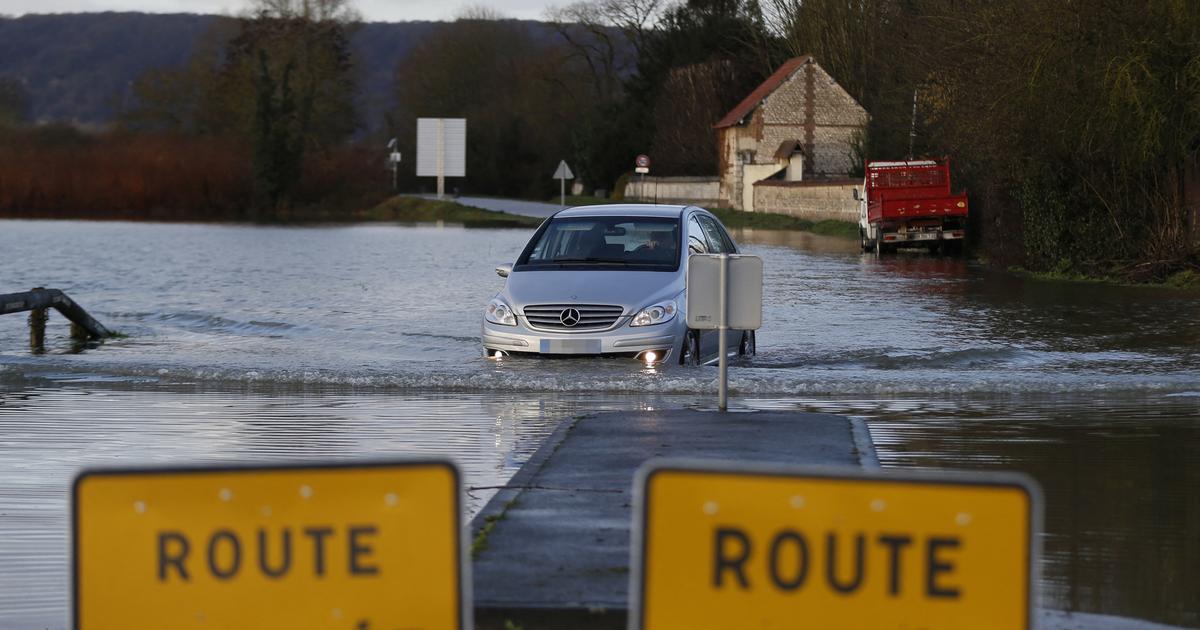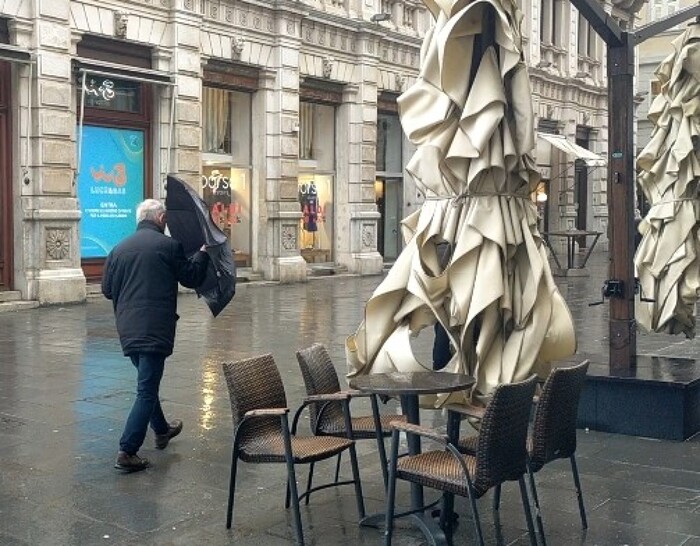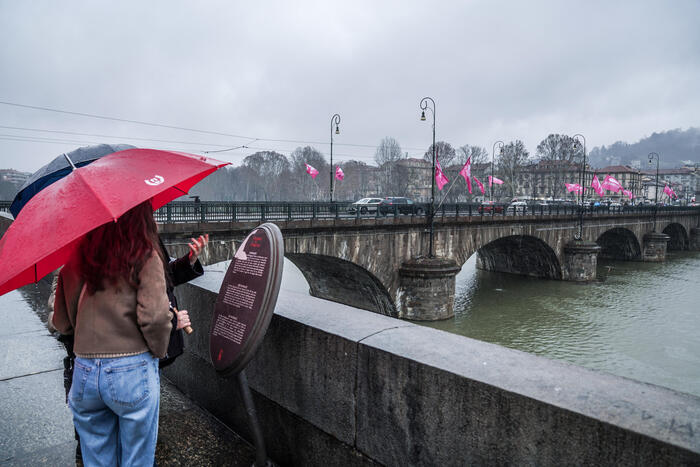Storm surges in the head: The suffering of Amelie Zachenhuber
Created: 04/14/2022, 10:00 am
By: Dieter Priglmeir
Call for help: With this picture, Amelie Zachenhuber drew attention to her illness via Instagram.
© Private
The suffering and struggle of Amelie Zachenhuber, a talented swimmer from Reisen
Travel/Erlangen
– “Can we open the window?
Pretty warm in here.” Amelie Zachenhuber shifts back and forth in her chair.
It's not her first visit to the editorial office, but this time it's different.
Sure, at the end of the conversation she will subsequently receive the trophy that she deserves as "Sportswoman of the Year 2019".
But in the next two hours it's not about their 14 German vintage champion titles or the two bronze medals at the European Youth Olympic Festival.
The young woman, who swam faster than Britta Steffen and Franziska van Almsick at the age of twelve, has been battling an illness for a year and a half: epilepsy.
If it were just a steel bath with the word "Heilung" at the end of the route - the 17-year-old would have dived in and guaranteed to be the first to arrive.
But the fight against epilepsy requires more: constantly questioning methods and medication.
“What makes sense for a competitive athlete?
One says to me: That is harmless.
The other is surprised that it's still not on the doping list," says Rosi Zachenhuber.
She is a swimming coach, but also a specialist nurse working in the intensive care unit - and above all Amelie's mother.
For years she has been trying to create the best possible conditions so that the greatest swimming talent that the district has ever produced can train optimally, but at the same time not neglect school.
The trophy for our 2019 athletes' choice seems like a relic from another time.
© Wolfgang Krzizok
Now mother and daughter sit together in the editorial office – and don't agree on many things.
But in one way: Amelie wants to get back to her old strength, and her mother will help her with that.
The master plan for this?
"There's no such thing," says Rosi Zachenhuber, "let's call it the restructuring phase."
There are too many questions: how and where to go next?
What is the training?
And above all: What if the events of that Monday in November 2020 repeat themselves?
Let's flash back: Amelie trains up to five hours a day in Erlangen and is also preparing for secondary school at the elite sports school in Nuremberg.
That Monday she is sitting in the classroom waiting for the grade on the math homework.
A five, "but I had the best work in the class," she says.
The school assignment will be repeated later, it will end with a one – but only marginally.
Somehow she felt very tired that morning, as if she could observe everything from the outside, she was pretty confused, she says today.
What happens then, she only knows from her classmates: a primal scream, she falls sideways onto her neighbor's lap, who is thinking of a joke.
But then this twitching, a violent seizure.
He stops for more than five minutes.
In the ambulance, she no longer knows her last name.
"Dude, what day it is - I didn't know anything anymore.
I was really scared, even panicked," says the 17-year-old.
Her mother rushes from Erding to the Nuremberg hospital.
Diagnosis: an epileptic seizure.
Neurologists explain this as a "storm or thunderstorm in the head" because nerve cells discharge in an unnatural way, like lightning.
Perception, thinking, behavior, the cerebrum goes haywire - the symptoms range from a single muscle twitch to loss of consciousness.
Call for help: With this text, Amelie Zachenhuber drew attention to her illness via Instagram.
© private
But you also have to know: According to statistics, every tenth German has had at least one such attack in the course of his life.
Experts only speak of epilepsy after the second time.
The Zachenhubers get to hear that too and try to cope with everyday life.
Amelie doesn't go to school until the Christmas holidays.
She doesn't wait that long to train - but always under the supervision of father Karl, mother Rosi, sister Alisa, or friends from her former swimming club SC Prinz Eugen Munich.
All have the German lifeguard badge in silver.
"Our neurologist made this a requirement," says Rosi Zachenhuber.
So someone is always sitting at the edge of the pool, watching out.
"We bought her a red bathing cap that was easy to see," says the mother.
"It's not that easy to stay awake at six in the morning when your daughter is swimming her laps." But of course the family does everything for Amelie, stays in her apartment, drives her from Erlangen to Nuremberg to school - so that you is on hand if necessary.
Just not once.
Amelie drives her usual training program.
She is also there when her training group traditionally swims the hardest of all as the last unit on New Year's Eve: 400 m butterfly at full speed.
"I almost collapsed," she recalls.
Two days later she is plowing her tracks again, then goes to strength training.
And while father Karl is cycling back to the apartment for a short errand, she suffers the second attack.
"I was completely disoriented," says Amelie.
She staggers, finally falls into the arms of her trainer Roland Böller and briefly loses consciousness.
The next few minutes must have been awful for the teammates, too, who couldn't open the pack of medicine because they were so excited.
Father Karl is back now.
"Can't they just leave you alone?" he scolds in his helpless desperation.
Even if the attack wasn't as severe as the first, he is aware that epilepsy will probably be a lifelong companion for his daughter - and thus also for the rest of the family, who act immediately.
A picture from 2019: Amelie on course for gold at the annual championships.
© Seifert
In countless conversations with doctors, Rosi Zachenhuber explores the eventualities and possibilities.
She makes contact with a professor in Erlangen who has experience with epilepsy in competitive athletes and assures them: Amelie will not have a seizure in the pool if she feels safe herself.
The psychologist from the German Swimming Association (DSV), Franka Weber, is also at Amelie's side, "and I'm already on first terms with the neurologist from the hospital," reports Rosi Zachenhuber.
In addition, the daughter receives a night watch bracelet that registers her heart rate while she sleeps.
At the first sign of a seizure, parents are informed via an app and could alert emergency services.
The Zachenhubers have everything that is in their own hands under control.
They cannot influence anything else.
As many different types of epilepsy as there are, so many different drugs are on the market.
Which strike is uncertain.
Only the side effects are certain: mood swings, difficulty concentrating, feelings of hunger – Amelie knows everything.
But she doesn't want to give up her beloved sport.
After a three-month break, she gets back into the water.
The training deficit, the weight gain - she is miles away from her best times.
In the open German championships, she does not reach the final in three out of four cases.
"It wasn't so bad," she says today.
She was very happy about the victory in the B final, in which she had just slipped in last.
But there is also this whispering behind her back: "The Zachenhuber doesn't even make it to the final anymore." That hurt her a lot, she says.
But Amelie is also a Zachenhuber – that means: She takes the initiative and makes her illness public, “although I actually wanted to keep it to myself”.
First she posts on her Instagram page, then she opens in the trade magazine "Swim & More".
The reactions were overwhelming.
"I got encouragement from everyone." That was good and showed her: She is part of the swimming community and wants to stay that way.
That's what she's working for - and now she's working very hard again.
The 17-year-old traveler loves competitive sports and is patiently working to get back to her previous personal bests.
© Provat
She trained on the back burner for two months, "because I was afraid that something could happen again," says Amelie.
Now she drives the former workload.
Low blows are inevitable.
She falls out of the association squad, although she was assured that she would remain in a kind of supplementary squad for a year, as Rosi Zachenhuber explains.
The April training camp in Florida will take place without them, as the coach only briefly reports on request.
Plan B is now taking effect: Camp in Slovenia with ex-trainer Elli Mangafic.
That is what Rosi Zachenhuber initially meant by the restructuring phase.
New ways, new ideas -- "and soon another competition," says the mother.
"No, I'm just not ready yet."
"It doesn't have to be anything big."
"Mummy!"
It crashes quite often at the moment – both confirm that.
The school grades in the FOS are no longer the same as they were in the Realschule.
Amelie, who dreamed of studying interior design since she was a child, completed it with a grade of 1.9.
But she didn't have to struggle with the side effects of medication.
"Amelie is finding it difficult to concentrate for a long time at the moment," says the mother, and the daughter talks about the ups and downs: "Sometimes I'm totally exhausted, then I call my friends and want to go to the trampoline hall immediately." And then there would still be the topic of food.
"It's just something different whether you're at Hotel Mama or have your own apartment and come home at 8 p.m. after school and five hours of training, haven't done your homework and are supposed to cook something healthy."
A great help was the chiropractor Meik Schönberger, who since then has looked after the traveler free of charge.
In the picture r.
she can be seen with her brother Simon.
© Private
By the way, the apartment is provided by the Turnerbund Erlangen.
rent free
"It's really a great thing," says Rosi Zachenhuber.
A scholarship from the Thomas and Birgit Rabe Foundation solves the worst financial problems, especially since the support from the German Sports Aid ended with the end of the federal squad.
The local sponsors are still there for Amelie, says the mother.
The Raiffeisenbank sponsored the camp in Slovenia, Stadtwerke Erding enabled free training in the swimming pool, and chiropractor Meik Schönberger continued to treat them free of charge.
"Yes, yes," assures Rosi Zachenhuber, the solidarity is great.
But it's still competitive sport, times and titles have to be delivered.
And that takes patience.
Amelie is five seconds away from her best time in the 100 meter butterfly (1:00.01 minutes).
Too slow for their coach, who has always demanded sacrifices.
Open words: In an interview with EA sports director Dieter Priglmeir, Amelie and Rosi Zachenhuber (from left) spoke about the difficult times since the first epilepsy attack.
© Wolfgang Krzizok
For example last year, when Amelie was invited to the "Let's Dance" show, when her brother Simon had his biggest performance when he danced the "Magic Moment" - a tribute to his own family.
"I wasn't allowed to go to the RTL studio in Cologne because I would have missed a training session," says Amelie, "a single training session".
She is still angry about that today.
"But of course, that's competitive sport." And she loves it.
"I want to go back there, but I'm just not ready yet," repeats Amelie Zachenhuber.
She feels well adjusted to medication.
She hasn't had an attack since January 2020, but she did have brief phases of the feeling that another wave would come.
"Aura" she calls it. "But I've got that under control."
And now?
Mother and daughter look at each other, both smile.
There are so many questions.
Should Amelie actually continue to train the long distances, as her trainer wishes?
Or is she perhaps a sprinter, as she was told when she was at home in the pool with her Erdinger friends?
Should she stay in Erlangen or come home for a leisurely journey?
When will she swim to her best times, will she be back in the national squad?
"I will not give up my dreams," says Amelie Zachenhuber.
“The competitions will come again.
I just don't know when yet."









